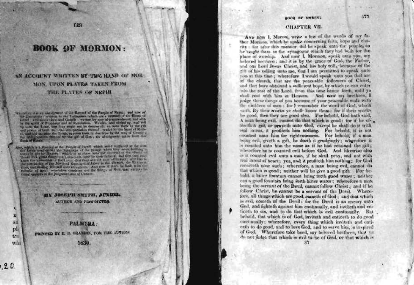Articles/Essays – Volume 16, No. 4
An RLDS Leader | Larry E. Hunt, F. M. Smith: Saint as Reformer 1874-1946
Few scholars of Mormonism have studied the Reorganized Church of Jesus Christ of Latter Day Saints, and fewer still have studied its leaders. Larry Hunt, in this two-volume study follows the life of Frederick M. Smith, son of Joseph Smith III and second president of the RLDS Church. He is a complex man who sought to fulfill his spiritual calling as a member of what many consider a “chosen” family. Hunt traces Smith’s roots from childhood through the development of his intellectual background to his confrontation with the Reorganized version of Mormonism’s Kingdom of God on Earth. The reader then follows Smith’s struggle as prophet and president to centralize the administration of his church, culminating in a hollow victory of obtaining “supreme directional control.” Finally, Hunt places this story in the framework of the Progressive Era and mugwumpery which he claims had an overwhelming influence upon the direction Smith led his church.
According to Hunt, mugwumpery was the most influential as the focus of a re form vigor tempered by “the vision he appropriated from his communitarian heritage” which Smith felt would lead his church closer to God. “No scholar to this date,” says Hunt, “has attempted to relate a leader from the broader Restoration tradition to the history of American reform in the late nineteenth and twentieth centuries” (vol. 1, p. 19). Since few studies have ever focused on the Reorganization, the reader is given a rare view of the man, seen by his membership as an authoritarian prophet-executive chosen by God, as he attempts to move the RLDS church toward greater relevancy in modern America and furthermore “to inch America closer to social and economic justice” (vol. 1, p. 20).
The book is exceptionally honest and straightforward as is evidenced by an insightful treatment of Smith’s embarrassment over the incompetence of a lay ministry called from among his peers while he sought a more systematic and disciplined group of spiritual leaders. The reader will also find a more thorough discussion of Smith’s extensive involvement with Masonry than has hitherto been available. The book sheds further light on the complexities of the issues which Smith confronted as he struggled to fit his brand of Mormonism in the mainstream of Christian eschatology.
We see Smith portrayed as a conscientious leader, who while keeping abreast of the social issues of day, managed to pursue a Ph.D. in psychology from Clark University, under the guidance of G. Stanley Hall, who was the first student to receive a Ph.D. in psychology from Harvard (1878) studying under William James. Smith was, however, a scholar of limited intellectual ability who Hunt says “wanted to fill the church with regenerated Saints who unreservedly accepted its programs under his benevolent direction and whose stewardship would be the chief precipitant of the kingdom” (vol. 1, pp. 16-17). Smith as a mugwump could applaud enforced morality because it lead his flock closer to the kingdom while accommodating the elitest qualities of that fragment of Progressive reform.
Hunt concludes with convincing documentation that to fully comprehend Smith and his raison d’etre one must first understand the RLDS interpretation of Mormonism. Smith’s attempt to centralize control of a fragmented and sometimes rebellious group of Saints was a product, says Hunt, of his religious heritage from an older Restoration tradition. This harkening back, combined with extensive education, produced a leader who was neither understood nor appreciated by many of his followers who nevertheless chose to support him as chosen by God.
Hunt seeks not only to account for the survival of the Reorganized Church under Smith’s presidency but also for its success. The book is a significant contribution to the scholarship on Mormonism.
F. M. Smith: Saint as Reformer 1874- 1946 by Larry E. Hunt (Independence, Missouri: Herald Publishing House, 1982), 2 vols., paper vol. 1, $11; vol. 2, $12.


 Back to full Issue
Back to full Issue

